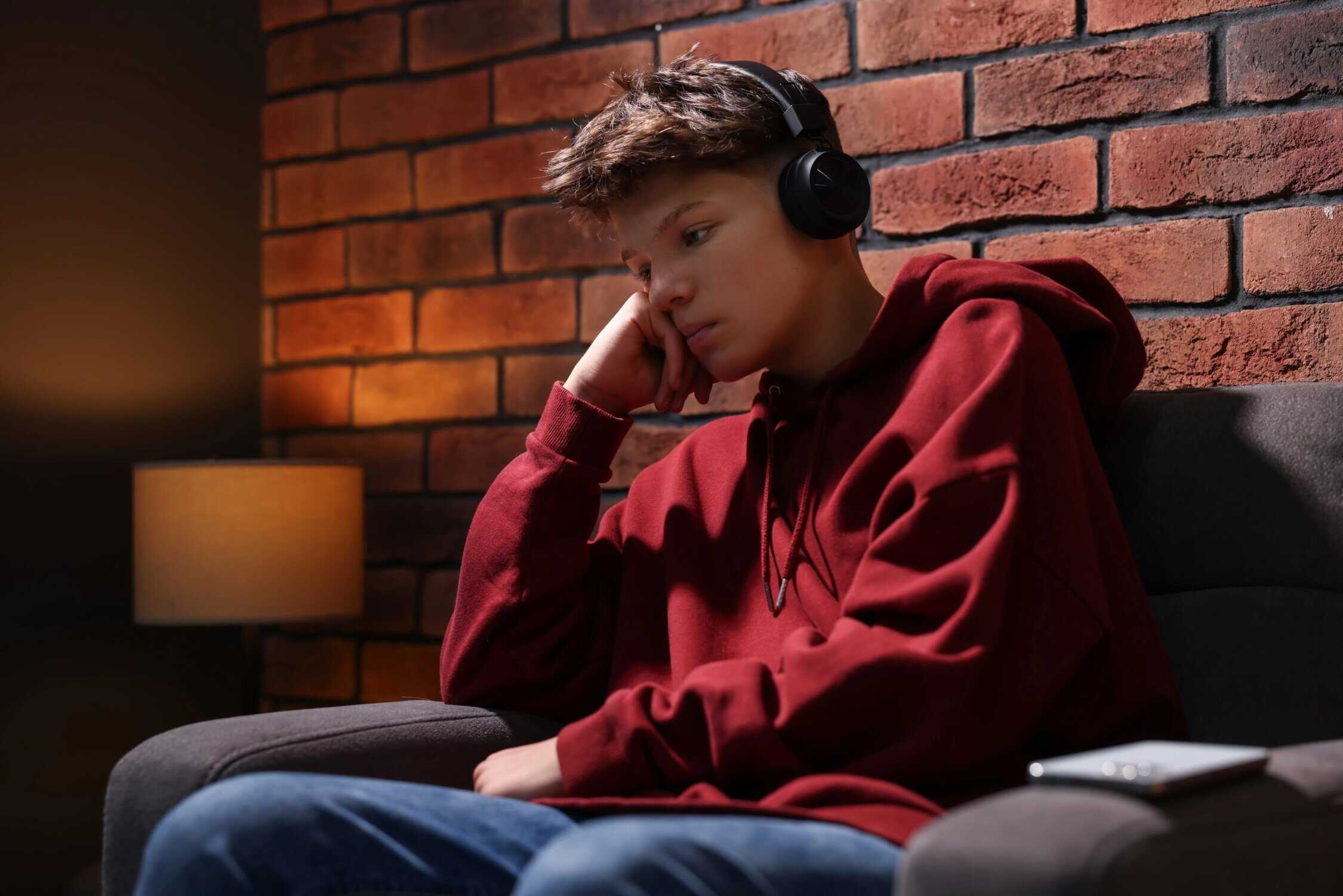Home | Teen Mental Health | Self-Harm Rehab Centers in California
Self-harm Rehab Centers in California
Self-harm is an incredibly painful struggle for many teens, and one that too often stays hidden. Defined as deliberately injuring yourself on purpose to cope, this behavior is more common than most people realize.
Table of Contents
Why Do Teens Engage in Self-Harm?
Self-harm often begins as a desperate attempt to cope with emotions that feel impossible to manage. For many teens, engaging in self-harm is less about wanting to die and more about trying to survive overwhelming pain.
Unfortunately, these behaviors may provide temporary relief but often create deeper struggles with shame, secrecy, and isolation. Understanding the reasons behind self-harming or suicidal behavior is the first step toward offering real help and healing.
Coping with Overwhelming Emotions
Non suicidal self injury may feel like a way to release tension, express emotions that are hard to talk about, or regain a sense of control in chaotic circumstances. Teens struggling with untreated mental illness, an eating disorder, or other mental health conditions may engage in self-harm as a way to cope, even though it often leads to greater distress.
Mental Health Pressures and External Struggles
For others, engaging in self harm may surface when the weight of daily life or a mental health disorder becomes unbearable. Suicidal ideation, academic pressure, conflicts with family members, or social challenges can all contribute to a sense of being trapped. In these moments, self mutilation can feel like the only outlet. But in reality, these behaviors are serious warning signs that point to deeper emotional pain and the need for professional self harm treatment before suicide attempts become reality.
How Self-Harm Can Lead To Suicidal Behavior
While plenty of teens start self harming without suicidal intent, research shows a strong connection between non-suicidal self injury and further risk. Teens who self injure often face higher rates of depression, anxiety, and trauma, all of which are risk factors for suicidal thoughts or attempts. The longer self harm continues, the more likely it is to escalate, making professional help and early intervention critical.
Help Your Teen Heal from Self-Harm
If your teen is engaging in self-harming behaviors, Key Healthcare provides the compassionate, evidence-based care they need. Our specialized teen self-harm treatment program helps adolescents understand their emotions, develop healthier coping strategies, and build a foundation for lasting recovery. Reach out today to start the healing process.
Adolescent Self-Harming Behavior Warning Signs
Recognizing self harm in teens can be incredibly difficult as many adolescents go to great lengths to hide their self-harming behaviors. But awareness is one of the most powerful tools parents and caregivers have in protecting their children. By learning the warning signs and common types of self injurious behaviors, you can take action early and connect your teen with the self harm treatment they need before these struggles escalate into suicidal ideation or suicidal behavior.
Common signs of self harm include: unexplained cuts, burns, or bruises; wearing long sleeves or pants in warm weather to cover injuries; isolating from family members or friends; sudden changes in mood or irritability; loss of interest in activities or appearance; and keeping knives or other sharp objects or other harmful items hidden. These behaviors often point to deeper mental health disorders such as depression, anxiety, or eating disorders.
Types of non-suicidal self-injury can vary, but some of the most common are:
- Cutting and Burning: Using sharp objects, heat, or chemicals to injure and self-harm, often in concealed areas or when experiencing hot weather.
- Hitting or Punching: Inflicting self-harm with fists, belts, or objects, sometimes repeatedly targeting the same body part.
- Hair Pulling: Deliberately removing hair from the scalp, eyebrows, or body, leaving physical and emotional scars.
- Substance Abuse: Using alcohol or drugs as a form of self-punishment, which can escalate to overdose or dual-diagnosis struggles.
Each of these self-harm warning signs and self-injurious behaviors is a clear indicator that a teen is experiencing overwhelming emotional pain. Early recognition, paired with compassionate support and self-harm treatment from a trusted mental health provider, can open the door to healing and healthier coping strategies.






Our goal in developing Key Healthcare was to create programs that gave teens the guidance they needed to draw on their strengths and realize their potential to live fulfilling happy lives. Based on our own experiences, we believe that everyone has the ability to change if given the proper structure and connection

Ryan Blivas & Evan Powell
Founders of Key Healthcare
Teen Self-Harm Treatment in Los Angeles, CA
If your teen is struggling with self-harm, know that help is available. At Key Healthcare, we offer compassionate, evidence-based self-injury treatment designed to uncover the root causes of adolescent struggles and build lasting recovery. Each program is tailored to meet your child’s needs with support from experienced professionals.
Our Los Angeles self harm treatment options include:
- Intensive Outpatient Program (IOP): 9 hours per week of focused therapy sessions to explore the reasons behind self-injury and develop healthier coping skills.
- Partial Hospitalization Program (PHP): 8 hours a day, 5 days a week of structured care where teens gain strategies to manage emotions and mental illnesses or conditions that do not involve self-harm.
- Residential Treatment Program: A 45–60 day stay in Malibu with 24/7 support, offering the highest level of care in a safe and healing environment.
- Individual & Group Therapy: Teens participate in a blend of therapies—including CBT, DBT, and ACT—to process emotions, address co-occurring substance use, and replace harmful behaviors with healthier choices.
It might feel like a big step, but remember why you're here—you’re looking for a way forward.
Teen Self-Harm FAQS
How serious is self-harm if there is no suicidal intent?
Even when there is no clear intent, engaging in self-harm is never a non-issue. Those with self-harming behaviors may believe the behavior is a way to manage difficult emotions, but it can create physical damage, long-term scars, and an increased risk of developing suicidal thoughts later on.
Self-harm behaviors like cutting, burning, punching walls, skin picking, or ingesting toxins over long periods of time can lead to infections, accidental overdoses, or emergency situations requiring an emergency room visit. Repeated harm and multiple attempts also increase the chances of more severe outcomes. Taking action early with professional care and effective treatment is essential.
How is self-harm diagnosed and treated?
A thorough psychiatric evaluation is often the first step in understanding self-harming behavior. A mental health provider or even your child’s pediatrician can help determine if self-injury is linked to depression, anxiety, or another mental health disorder or physical health condition. Effective self-harm treatment often combines therapy, family involvement, and skill-building.
Treatments like Dialectical Behavior Therapy (DBT) focus on distress tolerance, teaching teens new problem-solving skills and healthier coping methods. With personalized care, many learn various ways to process emotions, break free from harmful patterns, and build resilience for the future.
What should I do if my teen needs immediate help for self-harm?
If your child is in danger of intentional self-harm, showing suicidal risk, or has engaged in dangerous behaviors like breaking bones, head banging, or ingesting toxic substances, seek immediate help by calling 911 or going to the nearest emergency room. If the situation is less urgent but still concerning, reach out to your teen’s pediatrician, a trusted mental health provider, or a treatment center that specializes in adolescent care.
Encouraging open communication and reminding your teen that they are not alone can make it easier for them to accept professional care. With the right support, many not only recover but also discover other ways to cope when life feels overwhelming.
How can parents support a teen who self-injures?
Parents often feel confused or overwhelmed when they discover that their adolescent is self-harming. The most important step is to approach your teen with compassion and open communication, not anger or judgment.
Encourage them to share their feelings, validate their pain, and remind them that healthier coping strategies than self-harm, as well as professional care, are available. Partnering with therapists and involving the family in treatment, such as family therapy, helps create a safe and supportive environment for recovery.
Request a Call
Is your teen struggling with mental health or substance use challenges?
Request a confidential call today – our team will walk you through the admissions process, treatment options, costs, and what to expect. Reaching out is a powerful first step toward a healthier future for your teen and your family.
"*" indicates required fields
Insurances we Accept
Get In Touch with Key Healthcare
At Key Healthcare, we know how overwhelming it can feel when your teen is struggling with mental health or addiction challenges. That’s why our teen-focused treatment programs are designed not just to support young people, but to bring families into the healing process with compassion and care. From the very first call, you’ll find a team ready to listen, provide answers, and walk beside you every step of the way.
If you’re ready to explore options for lasting recovery, we invite you to reach out today. Our admissions specialists will gently guide you through what to expect, explain available program details, and help you feel confident about the next steps. Contact us at (800) 421-4364 or verify your insurance to start your family’s journey toward hope and healing.
Sources:
Moran, P. (2015). Adolescents who self-harm are at increased risk of health and social problems as young adults. Evidence-Based Mental Health, 18(2), 52. https://doi.org/10.1136/eb-2014-102018
McEvoy, D., Brannigan, R., Cooke, L., Butler, E., Walsh, C., Arensman, E., & Clarke, M. (2023). Risk and protective factors for self-harm in adolescents and young adults: An umbrella review of systematic reviews. Journal of Psychiatric Research, 168, 353–380. https://doi.org/10.1016/j.jpsychires.2023.10.017
If you are ready to get help for your child, we are here to help. Feel free to call us, email, or fill out our contact form to get started today. You can also verify your insurance to begin the process.
Check Insurance
Structure, support, and a path forward. See how programs at Key Healthcare help teens thrive.
Take the first step by verifying your insurance today and finding out what coverage options are available for your family. Our team will review your benefits and help you understand how to access the care your teen needs.
Medical Reviewer

Dr. Elnaz Mayeh PhD, LMFT
Share Program
Is your teen struggling?
Call today for a confidential conversation with a teen treatment specialist—we’re here to help.
Programs
Mental Health
Check Insurance
Check if your insurance will cover the cost of treatment.
"*" indicates required fields
- Your information is secure & protected by HIPPA.












